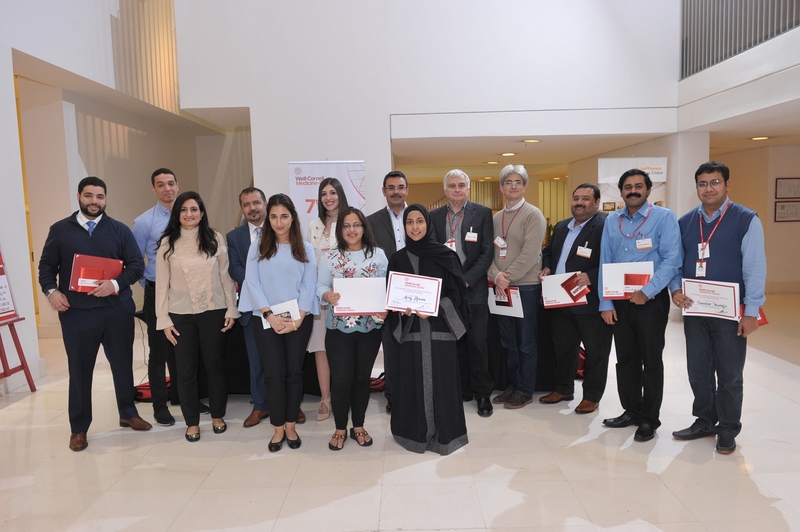The seventh Annual Research Retreat hosted by Weill Cornell Medicine – Qatar (WCM-Q) focused on the transformation of biomedical research in Qatar and the accomplishments of WCM-Q’s scientists over the past year.
The annual event is a highlight of the college’s calendar and has become a tradition that allows researchers to showcase their work and share their findings with peers from across Qatar and the wider world. Delegates from a broad range of biomedical institutions came to hear of the latest developments in biomedical research, and examine the work of students, research specialists and post-doctoral scientists.
Associate Dean for Research at WCM-Q Dr Khaled Machaca recounted the programme’s major successes after it was launched eight years ago.
I am very proud to say that we have had considerable success. Over a six-year period, our scientists had their work published in 587 publications and this culminated in an annual citation rate of 3,411 citations in 2016 alone, highlighting the impact and visibility of the research conducted at WCMQ.’
Dr Machaca, who also delivered a lecture about his work on calcium teleporting, said that the college now has 32 active laboratories, centred on eight research cores, and employs 181 researchers, vast majority of whom are recruited locally.
In addition, Research Division has trained 130 research specialists – 28 of whom are Qatari nationals – specifically targeting those who have a strong desire to work in research and wish to make it their career.
The Nationals Training Programme has also allowed WCM-Q to retain some of these extremely talented individuals as permanent employees, a major goal at the programme’s inception. Trainees from various research training programmes at WCMQ are also seeding other national programmes at the Qatar Biomedical Research Institute, Hamad Medical Corporation and SIDRA, thus contributing to a sustainable, highly-trained research workforce.
Dr Machaca also said that each year, WCM-Q has more than 90 percent of the medical student body undertaking research of some form, generally through the Summer Research Programme. This flagship initiative allows them to conduct research at laboratories throughout the world and also allows them to act as ambassadors for the college.
The issue of research in the framework of public policy was addressed by the dean of WCMQ, Dr Javaid Sheikh, who praised Qatar for the progress it has made in creating a fertile research environment in less than a decade. According to him, Qatar has, in a very short time, established a robust research infrastructure and is conducting significant basic research. Findings from these efforts will seed the commercialisation efforts led by Qatar Science and Technology Park.
Those sharing their work at the Annual Research Retreat include keynote speaker Dr David Thomas, Canada Research Chair in Molecular Genetics from McGill University in Montreal, who delivered the lecture ‘Curing Protein Trafficking Diseases’, the most infamous example of which is cystic fibrosis.
Additionally, presentations were given by WCM-Q researchers Dr Nayef Mazloum, assistant professor of microbiology and immunology; Dr Joel Malek, assistant professor of genetic medicine; Dr Stephen Atkin, professor of medicine; and Dr Maher Saqqur, senior consultant at Hamad Medical Corporation’s Neuroscience Institute.
The Research Retreat also featured 92 poster presentations by research specialists, students, post-doctoral fellows and research associates from WCMQ. The event closed with the announcement of the winners of the poster presentation in three categories.
Tarek Taha and Tina Bharani jointly won first place in the student category. First prize for the research specialists’ category went to Gaurav Thareja with a poster detailing a genetic survey of diversity in Phoenix dactylifera trees from Qatar. The postdocs/research associates category first prize winner Vimal Ramachandran for his poster about the potential therapeutic properties of microRNA33 in reducing cholesterol.






